What Is a Junk Car?
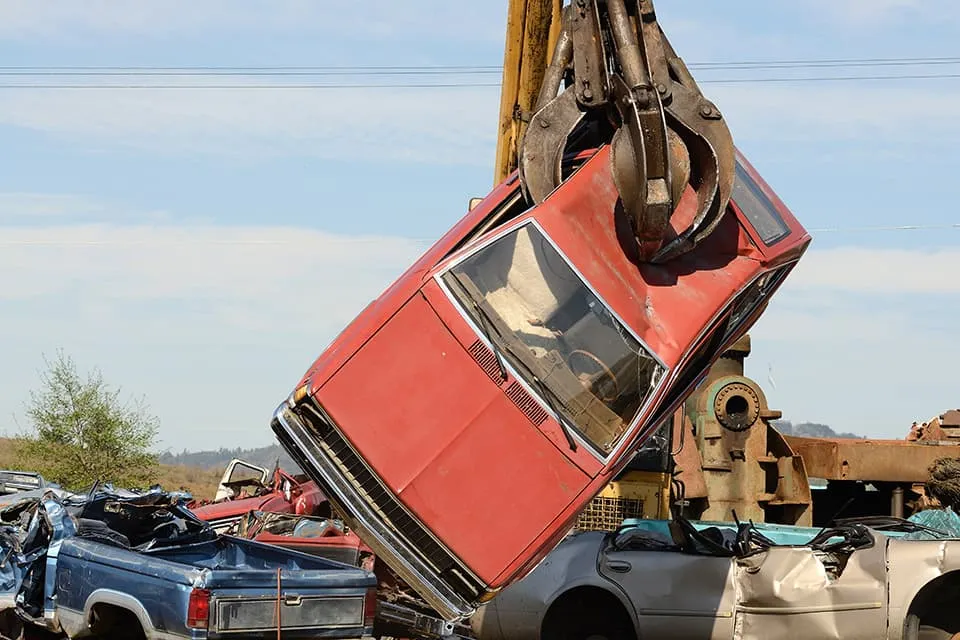
A junk car, also known as a scrap or salvage car, is a vehicle that has been damaged beyond the point of reasonable repair. The cost of the repairs needed to make the car run would exceed its resale value; therefore, the most sensible option is to "junk" the car and sell the remaining functional components for scrap.
The first step to the salvage process is identifying what is considered a junk car.
What Is Considered a Junk Car?
Junk cars can usually be identified by an inability to operate, severe damage, and low value. Here are several characteristics you can look for to determine whether a car is junk.
Old
Vehicles deteriorate with age, and the older a car becomes, the closer it gets to the scrap yard. For a car to be legally defined as a junk vehicle, it needs to be at least three years old. Most scrap vehicles are far older than this, and an older car is much harder to find parts for. If the parts are challenging to obtain, the cost of repairs likely exceeds the resale value. Older cars also tend to be more dangerous; seatbelts, for example, weren't required until 1968. Many older models may be missing vital safety features and are more likely to become junk cars.
Lacking Paperwork
A car can also become junk if it's missing its title and registration; this makes it difficult to identify an owner, increasing the likelihood of the vehicle being abandoned. A car without paperwork will usually sit in an impound lot or junkyard, deteriorating due to element exposure and lack of upkeep.
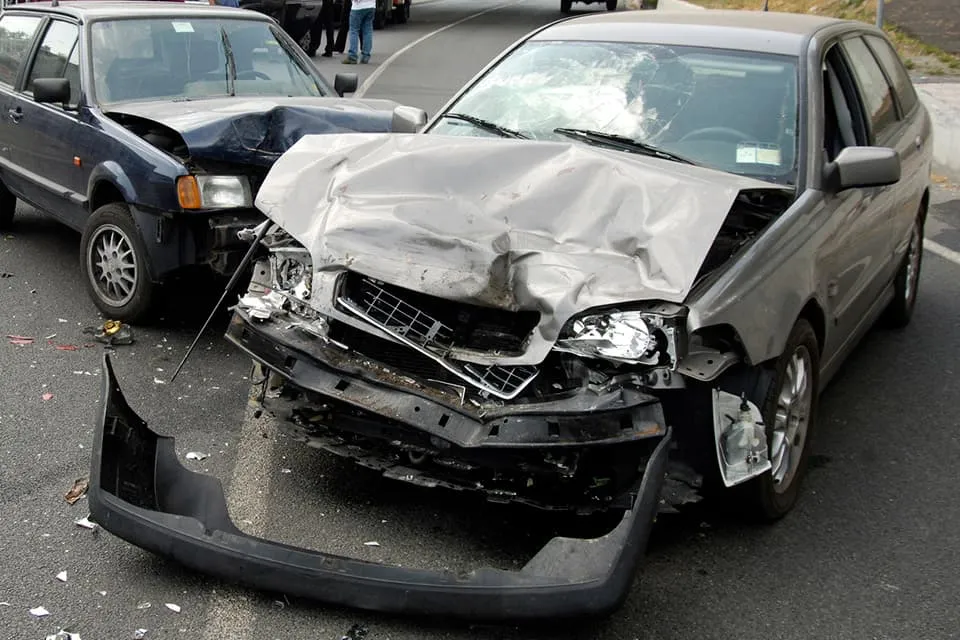
Damaged
If a car has been in an accident or damaged in any other way, it may become classified as a junk car. If any significant parts have been damaged, the repairs could easily exceed the cost of the vehicle. These parts include:
- Motor
- Engine
- Transmission
- Tires
- Brakes
- Steering System
These vehicles will also usually receive a salvage title, making it almost impossible to get insured. Most of the time, the only way to get any money out of these cars is to sell them for scrap.
Inoperable
A vehicle that can no longer operate under its own power is often deemed as junk vehicle. If the car can't move, whether it be due to a non-working engine, broken steering, busted transmission, or any other major system failure, it's probably best to sell the remaining components as parts.
Low or No Resale Value
If an expert inspects the car and deems it as having no value, that means the vehicle is junk. A dealership may buy the car for scraps and take it to the local junkyard. You may be able to trade in the car, but you'll get far less due to the low perceived value.
Totaled
Insurance companies can also label a car as junk by deeming the vehicle "totaled". Totaled is an insurer's way to say that the repair costs exceed the vehicle value, and therefore they will no longer insure that car. Just like with significant damage, a totaled car will receive a salvage title and likely be sold for parts.
What To Do With a Junk Car Before Scrapping?
If you think your vehicle has some of these characteristics, don't rush to the junkyard quite yet. There are several steps you need to take before scrapping your vehicle.
Determine the Car's Condition and Take an Inventory
If possible, take your vehicle to an automotive expert to determine its condition. While you may believe you have a junk car, it's best to have someone well-versed in automotive repair do a full assessment. A mechanic will tell you what level of deterioration the vehicle possesses, what parts are in good condition, and possibly what you could get by scrapping those parts.
These parts can include the battery, wheels, alternator, and entertainment system; anything in sellable condition could be worth some cash. You can even remove any remaining gasoline from the tank if you want to make sure no bit of value is left in the vehicle.
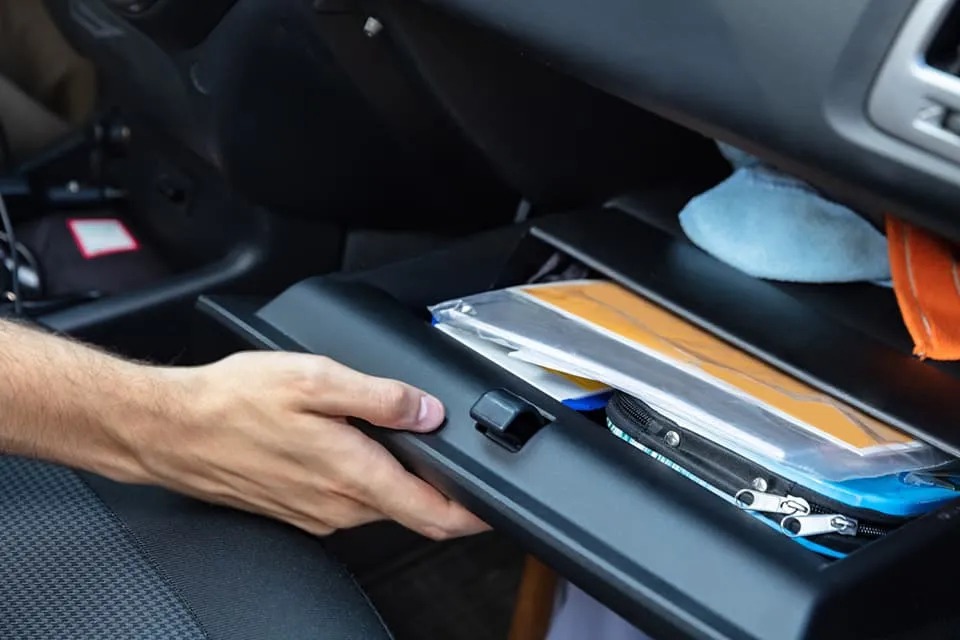
Remove All Personal Items From the Vehicle
Once you've decided the car is junk, you'll want to take everything you own out of the vehicle. Check every nook and cranny of the car for personal items; this includes the dash, center console, sunglass holder, under the seats, and the trunk. You should clear out any storage area within the vehicle, so nothing of value is accidentally folded in with the scrap. You'll especially want to empty the glove compartment of essential documents, as you'll need them for the junking process.
Find Ownership Documents
Having all of your paperwork in order will make the salvage process much more manageable. You'll need documents that prove your ownership, like the car title. You'll also need to transfer that title and ownership over to the car buyer. If you can't find your title, you can go to your local DMV or visit their website to get your title replaced. This process can take a couple of weeks, so make sure to start as soon as possible.
Remove License Plates
One of the lesser-known salvage steps, removing the license plates from a junk automobile, is a necessary part of this process. In many states, you are legally required to remove the license plates before transferring ownership. The DMV will ask for these plates when you try to transfer the title, so make sure you've removed them prior to salvage.
Cancel Insurance
Canceling your insurance before scrapping a junk car can prevent unnecessary payments while also notifying your carrier you'll be switching to a new vehicle. If you have paid your insurance in advance, you may be entitled to a refund. Contact your insurance provider to discuss their refund policy so they can help you get your money back.
Find the Best Junk Dealer
Even though your car is junk, that doesn't mean you need to accept the lowest offer. Instead, shop around with different junk vehicle dealers, and see what they are willing to offer. You'll also want to make sure the dealer is licensed and highly rated; check google reviews to see if that dealer usually gouges customers, and try to avoid getting scammed.
How To Junk a Car?
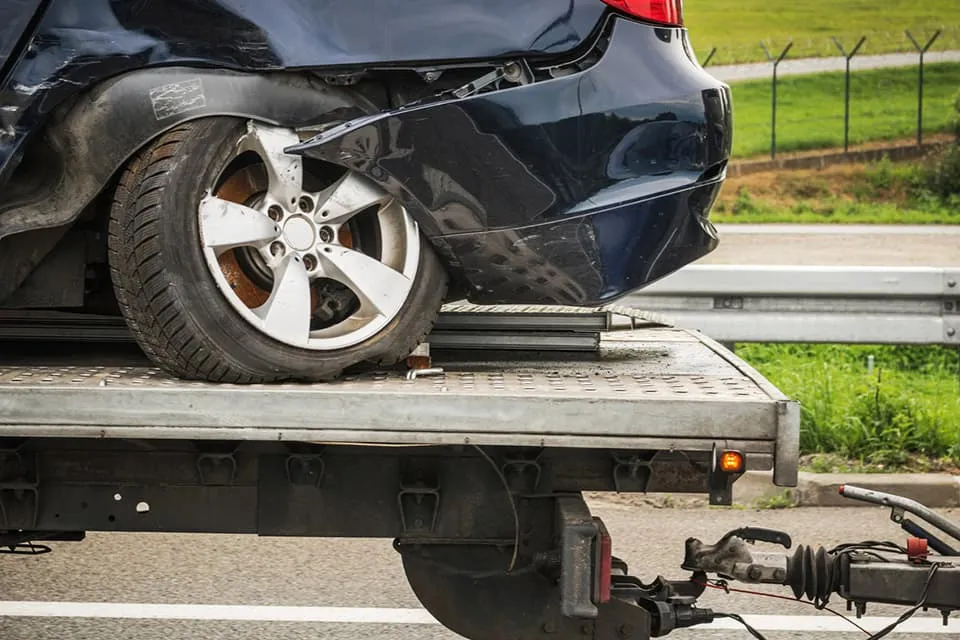
So now you are sure it's time to take your vehicle to the salvage yard; what exactly should you do? Here are the seven steps you need to take to junk your car.
Gather All the Necessary Documents
Hopefully, you cleared your vehicle of personal items and took all the documents out of the glove box. While the requirements vary from state to state, you may need any of the following documents:
- Registration
- Car Title
- Bill of Sale
- Service History
- Owner Manual
You can look on your local DMV's website to see what your state's requirements are. You'll also need as much information about the vehicle as possible. This includes the engine and body condition, make, model, year, mileage, and any damage.
Find a Salvage Dealer
You want to make sure the salvage dealer you use is licensed and has a good reputation. Ask your friends or anyone with salvage experience who they trust in town, and try to find the best possible dealer to scrap your car.
Get a Junk Car Quote
Get a quote from one or several salvage yards to see how much value is left in your vehicle. This value will change depending on the car's make, model, and condition. Cars with all of their parts are often worth more, as they have a higher weight; more weight usually means more value in salvage terms.
Set a Time for Pickup
Once you've found a dealer and gotten the optimal quote, you'll want to set a pickup time. Most salvage yards will tow your vehicle for free from your property. If your car is inoperable and has to be towed, having a salvage yard pick it up can save you time and money.
Complete All Paperwork
Selling your junk vehicle to a salvage dealer means filling out paperwork. What documents you will need to complete and sign depends on local and state regulations; it's always helpful to check your local DMV to see what is required in order to scrap a car. Of course, the dealer will also know these requirements, so make sure to ask them before the sale.
Get Payment
Once all the paperwork is signed, it's time to get paid. Hopefully, you will have shopped around for quotes to get the maximum possible price for your car. Dealers will often try to negotiate for a lower price, so multiple quotes can help you backup your initial offer. Many dealers will also pay in cash, though you may be paid in check if you are missing the car's title.
Notify DMV and Your Insurance Provider
After the sale is complete, make sure to notify both the DMV and your insurance provider. You can do this by visiting their respective websites, going into their physical locations, or contacting them on the phone.
What To Look For When Purchasing Junk Cars
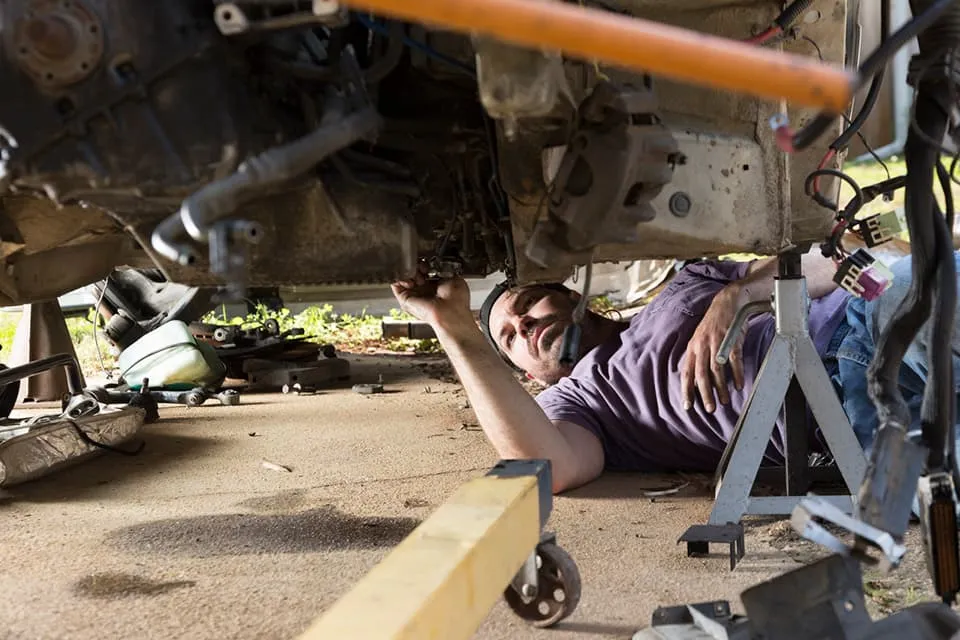
Instead of trading in your car to a scrapyard, you may be looking to purchase. Whether you intend to fix the car up despite the lack of a clean title or break it down into parts yourself, purchasing a junk car can be a great financial investment.
- Find All Damage: Before purchasing a junk vehicle, make sure to get a full assessment of the damage. This can help inform the price, and prevent you from overpaying for a car that's far beyond the point of repair.
- Get A Complete List Of Purchase Details: Before buying a junk car you'll want all the paperwork you'll need to prove ownership. Items like the registration and title are important, but you'll also need the insurance, warranty, and any financing information about the vehicle. Purchasing a junk car without these items could make it difficult to verify legal ownership.
- Determine Why The Vehicle Was Junked: Ask the car dealer why the vehicle was given a salvage title in the first place, and try to determine what damage would result from that event. For example, if the vehicle was in a rollover crash, there will almost certainly be damage to the chassis and impact safety systems. Make sure that everything matches the damage report, so you know you aren't being scammed.
- Assess The Price: A junk car should cost well below what the original make and model would have been off the lot and the dealer's asking price should reflect that. Research the car's value using an online service like NADA or Kelley Blue Book so you can see how much the vehicle is really worth.
- Get The Vehicle Inspected: While not always an option, having the vehicle inspected prior to purchase is one of the best ways to get the car's true value. An automotive professional can tell you the total sum damage of the car, and give you a prediction for how much it would cost to repair.
- Acquire a Vehicle History Report: Even if you can get the car inspected, it's still best to get a full vehicle history report. Using an online vehicle search engine, you can get a better idea of the past ownership, accident history, and current lien status. These reports include many other essential details as well, and can help you make a more informed purchase.
Junk Cars Frequently Asked Questions
What is a Junk Car?
A junk car, or scrap car, is a vehicle whose damage exceeds its resale value. If the cost of fixing a vehicle costs more than you could sell the vehicle for, the only sensible choice is to sell it for parts or scrap. These vehicles are often sold to junkyards for this very purpose.
How To Get Rid Of My Junk Car?
If a junk car is inoperable, you will need to get it towed. While many local tow truck companies will work, you may want to contact a salvage yard first. Many salvage yards will tow your vehicle for free if you sell your car to the yard.
What To Do With a Junk Car?
First, you should bring the vehicle to an automotive specialist to determine its actual condition. Some cars that may appear to be junk can actually be repaired. Once a professional has determined the vehicle is junk, you can bring it to a salvage yard or junk dealer. You'll get a quote for what they think it's worth; if you agree to the price, you'll sell the vehicle to them for parts. You'll then drop off the car (or they will collect it), the title will be transferred, and you will be paid.
How Much Can I Get For a Junk Car?
The amount you can get for a junk car varies widely based on several factors, including the make, model, year, condition, and location of the vehicle. Generally, prices can range from about $50 to $500 or more for junk cars.
How to Check If a Car Is a Junk Car
Use GoodCar's powerful tools to check to see if a vehicle has a branded title, is a junk or salvage vehicle or has been damaged by fire, flood, or vandalism.
FREE Vehicle Search
- Accidents
- Problem Checks
- Title Records
- Recalls
- Values
- Specs
-
InfoPay, Inc. (dba GoodCar) is an Approved NMVTIS Data Provider
-
-































